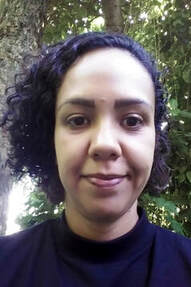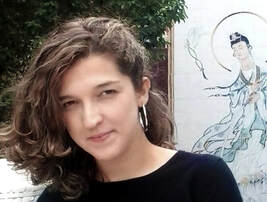|
by Leonardo Schiocchet, Mirian Alves de Souza, and Helena Manfrinato Recent data from the World Health Organization (WHO) (WHO n/a) shows Brazil as second in the ranking of the world most affected countries by the covid-19 pandemic, having surpassed 100.000 deaths in August 2020. This number is especially astonishing when considering that it is already larger than the number of immediate deaths caused by the Nagasaki atomic bomb explosion, and close to that of the highest estimates for the Hiroshima atomic bomb (Hiroshima Day Committee. n/a.). There is a consensus among health specialists and humanitarian representatives that in the case of Brazil, governmental responses are largely to be held accountable for the spread of the pandemic (OHHCR April 29, 2020). The Bolsonaro presidency has consistently downplayed social distancing measures calling them “scorched-earth” tactics, promoting instead the use of Hydroxychloroquine, which in turn has been scientifically considered inefficient and even dangerous as treatment for Covid-19 (Cavalcanti et al. July 23, 2020). In 2018, Brazil became the world’s sixth largest recipient of request for asylum, with Venezuelans accounting for more than three quarters of all claims (61.600) (UNHCR, 2019). This new role as global refugee host has not yet been sufficient acknowledged by the literature on forced migration world-wide, and may appear contradictory to Bolsonaro’s strong and overt anti-minorities stance. As Patrícia Nabuco Martuscelli (2020) notes, the Brazilian legislation towards migration and asylum is “progressive”, since the asylum law (Law 9474/1997)
It is first and foremost important to understand that these laws are reminiscent of the governments of Fernando Henrique Cardoso (1995-2003) and of those of the Workers Party (Partido dos Trabalhadores, PT) (2003-2016). Moreover, the Bolsonaro presidency justifies the presence of Venezuelan refugees in the country as a marker of what it brands “Bolivarianism,”[1] a conservative push in Latin America. As Martuscelli (2020) explains, uncertainty, fear, and xenophobia are the refugees’ main concerns in their experience of the pandemic in Brazil and government responses to it. As non-citizens, they are more vulnerable to the Brazilian government responses to Covid-19 especially due to the closure of the countries’ borders and of important sectors of the Federal Police, and to the lack of access to emergency benefits. On March 11, 2020 the government halted all asylum deadlines and, on March 16, all immigration deadlines and the meetings of the National Committee for Refugees (CONARE) (Portaria Nº 2). In addition, since March 26, the government has published a series of decrees prohibiting the entrance of non-nationals in Brazil (such as Portaria Nº 47 and Portaria nº 255). Aimed at containing the Covid-19 pandemic, these decrees violate Human Rights and interfere with the Brazilian refugee and migration laws, denying the right to apply for asylum and suspending non-discrimination laws that safeguard the right for equal access to public services, including health and social assistance. Such decrees deny the protection against repatriation of refugee family members (guaranteed by the migration law) and the right to documentation, which was suspended by the partial closure of the Federal Police. After the opposition majority votes, and against its will, the government did issue a humble emergency benefit for vulnerable populations affected by the pandemic (Auxílio Emergencial do Governo Federal, popularly known as “corona voucher”)[2]. However, refugees were uncertain if they qualify for the benefit given their lack of access to documents and information. Besides the latest groups of refugees, mostly of Venezuelan origin, there are significant groups of refugees from the Syrian conflict that arrived in Brazil during the PT years, including 3.326 registered Syrians, and 350 registered Palestinians, along with smaller numbers of Lebanese and Iraqis (Governo Federal 2019), although these numbers may be higher in practice. In addition, Brazil has around 3 to 4 million citizens of Syrian origin (alongside millions of Lebanese and Palestinians) that migrated to Brazil especially in the second half the Nineteenth Century and first half of the Twentieth Century (Lesser 2000; Karam 2009; Pinto 2010). Refugees of the Syrian conflict in Brazil tend to be embedded in support networks led by the established Arab diaspora in Brazil and other Brazilian grassroots initiatives, as stated by the Brazilian specialists on refugees of the Syrian conflict, Mirian Alves de Souza and Helena Manfrinato, interviewed by Leonardo Schiocchet on August 14, 2020. There is no reliable data on how many refugees of the Syrian conflict actually contracted covid-19, with few cases reported among the community. Both Souza and Manfrinato agree that the most immediate consequence of the pandemic among refugees has been a devastating economic downfall. Souza noted that Brazil applies different standards for the different nationalities among the refugees from the Syrian conflict, including Palestinians. The approval rate of Syrians is close to 100% and that of Palestinians is also very high. Yet Lebanese have a very small approval rate. According to Souza, the situation of refuges of the Syrian conflict in Brazil is “frightening”, given that they depend mostly on jobs in the food service industry, which came to almost a total halt in early 2020 owing to social distancing measures enforced by the government or observed by citizens on their own. Souza points out that in Rio de Janeiro, this business was overwhelmingly in the street food sector. This food is sold at very low prices, and the main consumers are members of the working class, who in general cannot afford to observe social distancing practices. Now that Brazilians are slowly returning to the streets in spite of the covid-19 pandemic the refugees’ situation is recovering slightly. Manfrinato stated that in São Paulo, too, refugees of the Syrian conflict depend on the food service industry for a living. Yet most food used to be sold in restaurants owned by the refugees themselves. After the covid-19 outbreak, all their restaurants closed due to the lack of clients. A Syrian refugee, who sold food in the streets, created a delivery system in neighbourhoods where few people observed social distancing measures, especially quarantine. But his relative success stands out as rare. Besides, refugees were overwhelmingly unsuccessful in negotiating lowered rents for their shops and residences, and many of them now depend almost exclusively on emergency aid. What is more, racism and xenophobia associated with covid-19 have affected migrants at large. Few refugees reported that they had access to federal emergency aid. Most of them are benefiting from grassroots efforts by the established Arab community or other Brazilian social movements. According to Manfrinato, one of the largest mosques in São Paulo launched a large operation to distribute food (cestas básicas), blankets and clothes to those in need, including, but not limited to, the refugees of the Syrian conflict. According to Souza, even the refugees themselves, being among the most affected population, started their own initiatives to distribute food to those in need in the streets of Rio de Janeiro. These initiatives (re)approximated the refugees’ grassroots social movement. In Rio, Simsim Culinária (led by a Syrian refugee) participated in Cozinha Solidária, a partnership between Junta Local (a network of small producers and local cooks, including refugees from various countries) and other collectives to distribute food (quentinha) to a favela. Solidarity among these refugees and Brazilian social movements is not new, but as Manfrinato contends, the covid-19 outbreak led to a reorganization of solidarity, which was based at least as much on ideology and identity as on contextual approximations. For example, one of Manfrinato’s Palestinian interlocutors created an NGO called Refúgio Brasil. The NGO had started with a group of Palestinians helping Palestinian refugees from the Iraqi conflict. With the onset of the war in Syria, it quickly gained momentum and widened its scope, while still being fundamentally funded by the Palestinian community in Brazil. This NGO, as others, used a three-phase approach to their actions: Socorro (help, emergency), integração (integration) and consolidação (consolidation). The first phase is marked by emergency aid, especially food distribution and rent support. The second is focused on generating income and autonomy by offering intercultural courses geared towards the job market. The third and final phase is accomplished by finding jobs for the refugees and maintaining professional psychological support. This NGO was very successful in creating partnerships with other Brazilian social movements and local business. However, the covid-19 outbreak caused most refugees to lose their jobs and residences. It had a devastating effect on these established networks, as it forced all social actions back to the first, emergency phase. According to Manfrinato, this example illustrates well what happened to all other grassroot initiatives in which the refugees and the Arab community were involved. Both Souza and Manfrinato emphasize that it is equally important to note other effects of the covid-19 outbreak, which are likely to have long-lasting repercussions. The Brazilian scholars corroborate Martuscelli’s point that access to public health care (SUS) poses a problem for refugees. While this access is in theory universal and independent of citizenship, in practice racism and xenophobia occur among the staff of hospitals and health centers. Souza and Manfrinato concur that anxiety and anguish in the face of incertitude have deeply marked the refugee community in question. In conclusion, the covid-19 outbreak precipitated and strengthened serious economic difficulties, difficult access to basic services such as official records and health care, racism and xenophobia, and the reinforcement of the community’s isolation vis-à-vis others in Brazil and their own families abroad. This, in turn, has a negative impact on the psychosocial outlook of this refugee population. Refugees in general are affected by enforced immobility. The refugees in Brazil are confronted with this problem to an aggravated degree. And while the pandemic led to the emergence and restructuring of important forms of solidarity among refugees of the Syrian conflict, it also significantly restricted others. Apart from Martuscelli’s recent publication (2020) and the ongoing work by Souza and Manfrinato, very few other studies of the refugees’ experiences during the pandemic in Brazil have been conducted (see for example, Caramuru 2020; Baeninger et al 2020). The facts presented in this blog suggest that the psychosocial and structural effects of the covid-19 pandemic are likely to be long-lasting. While it is necessary to study the current situation of medical emergency, quarantine and social distancing, studies tracking the long-term effects of the so-called “new normality” on social organization are equally pressing. Notes [1] Venezuela’s official name is República Bolivariana de Venezuela. [2] In September 2020, the government announced that the emergency benefit will be cut in half, despite the increasingly deteriorating economic situation of the country. References: Baeninger, Rosana; Vedovato, Luís Renato; Nandy, Shailen (eds). 2020. Migrações Internacionais e a Pandemia da Covid-19. Universidade de Campinas. Caramuru. Bárbara. 2020. Palestinos migrantes e refugiados e as políticas de "fechamento de fronteiras" na Pandemia da Covid-19. Cadernos de Campo, Vol 19, pp. 278-288. Cavalcanti, Alexandre B. et al. July 23, 2020. Hydroxychloroquine with or without Azithromycin in Mild-to-Moderate Covid-19. The New England Journal of Medicine. DOI: 10.1056/NEJMoa2019014. https://www.nejm.org/doi/full/10.1056/NEJMoa2019014. Accessed on August 15, 2020. Governo Federal: Ministério da Justiça e Segurança Pública. 2019. Refúgio em Númros, Quarta Edição. Official Report. https://www.justica.gov.br/seus-direitos/refugio/refugio-em-numeros. Accessed on August 16, 2020. Hiroshima Day Committee. n/a. Hiroshima and Nagasaki Bombing: Facts about the Atomic Bomb. http://www.hiroshimacommittee.org/Facts_NagasakiAndHiroshimaBombing.htm. Accessed on August 15, 2020. Karam, John Tofik. 2009. Um Outro Arabesco: Etnicidade Sírio-libanesa no Brasil Neoliberal. São Paulo: Martins Fontes. Lei Nº 9.474, De 22 De Julho De 1997. 1997. Define mecanismos para a implementação do Estatuto dos Refugiados de 1951, e determina outras providências. Brasília, DF. http://www.planalto.gov.br/ccivil_03/leis/l9474.htm. Accessed on August 15, 2020. Lei Nº 13.445, De 24 De Maio De 2017. 2017. Institui a Lei de Migração. Brasília, DF. http://www.planalto.gov.br/ccivil_03/_ato2015-2018/2017/lei/l13445.html. Accessed on August 15, 2020. Lesser, Jeffrey. 2000. A Negociação da Identidade Nacional. São Paulo: Editora da UNESP. Martuscelli, Patrícia Nabuco. 2020. Como refugiados são afetados pelas respostas brasileiras ao COVID-19?. Revista de Administração Pública, Rio de Janeiro. http://bibliotecadigital.fgv.br/ojs/index.php/rap/article/view/81773/77971. Accessed on August 15, 2020. OHHCR (Office of the High Commissioner for Human Rights). April 29, 2020. COVID-19: Brazil's irresponsible economic and social policies put millions of lives at risk, UN experts say. https://www.ohchr.org/EN/NewsEvents/Pages/DisplayNews.aspx?NewsID=25842&LangID=E. Accessed on August 15, 2020. Pinto, Paulo G.H. 2010. Árabes No Rio De Janeiro: Uma Identidade Plural. Ruo de Janeiro: Editora Cidade Viva. Portaria Nº 2, De 20 De Março De 2020. 2020. Dispõe sobre a suspensão dos atendimentos presenciais, dos prazos processuais e das reuniões do Comitê Nacional para os Refugiados, de que trata a Lei nº 9.474, de 22 de julho de 1997. Brasília, DF. http://www.in.gov.br/en/web/dou/-/portaria-n-2-de-20-de-marco-de-2020-249674366. Accessed on August 15, 2020. Portaria Nº 255, De 22 De Maio De 2020. 2020. Dispõe sobre a restrição excepcional e temporária de entrada no País de estrangeiros, de qualquer nacionalidade, conforme recomendação da Agência Nacional de Vigilância Sanitária - Anvisa. Brasília, DF. http://www.in.gov.br/en/web/dou/-/portaria-n-255-de-22-de-maio-de-2020-258114133. Accessed on August 15, 2020. UNHCR. 2019. Global Trends: Forced Displacement in 2018. https://www.unhcr.org/statistics/unhcrstats/5d08d7ee7/unhcr-global-trends-2018.html. Accessed on August 15, 2020. WHO. August 15, 2020. WHO Coronavirus Disease (COVID-19) Dashboard. https://covid19.who.int/?gclid=CjwKCAjwj975BRBUEiwA4whRB7-Dv1CprVOZBN_Jj-DxS3_YH613XmlBTv_HpYFS3-Pjw0UPB8V-hxoCnkYQAvD_BwE. Accessed on August 15, 2020.
0 Comments
Leave a Reply. |
Archives
June 2022
|
No part of this publication may be reproduced, stored in a retrieval system or transmitted in any form or by any means, electronic, mechanical, photocopying, recording or otherwise, without prior permission of the copyright holder, except for the inclusion of quotations properly cited.
Published in Vienna, Austria by ROR-n.



